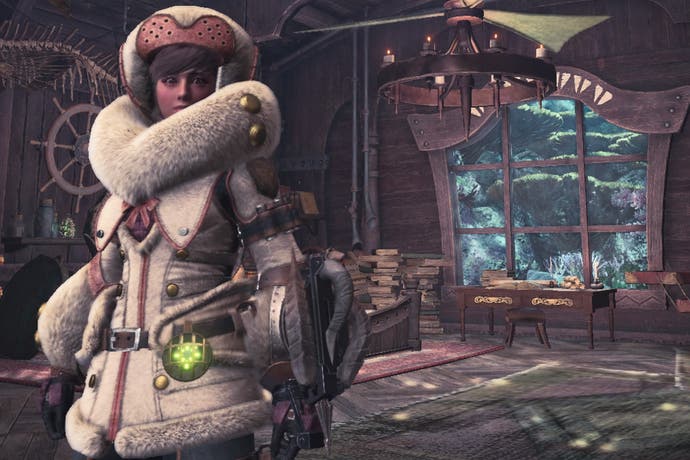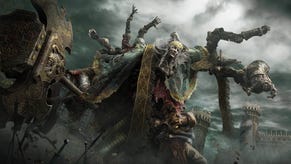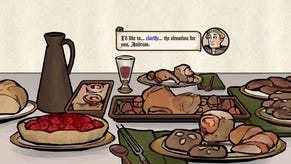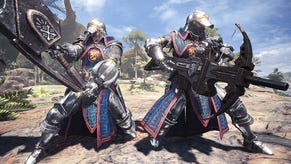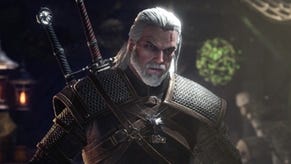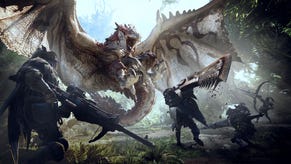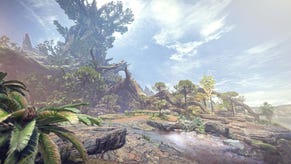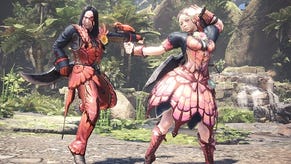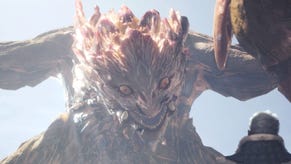Monster Hunter World has so much to teach other big budget games
Giant killer.
You wouldn't cheese an Odogaron - even a tempered, high rank bastard that had carted you and your team over and over until you'd all convinced yourself this demon doggy was not going to be put down - because, well, you just wouldn't. It's a question of respect, isn't it? And Monster Hunter: World's many beasts, from the humble Kula-Ya-Ku to some of the mightier elder dragons, certainly command your veneration.
Which, in a beat, gets to the heart of what makes Monster Hunter so special. Comparisons are there to be made between Capcom's grind-heavy, loot-fuelled co-op adventure and a certain shared world shooter whose name you may well have heard being dropped around these parts, but it's more enlightening to look at where Monster Hunter differs from the rest. Given the ignoble fits that Destiny 2 has found itself in since its launch, maybe the likes of Bungie would do well to study some of those differences too.
The story of the big budget, persistent online console game has, in recent history, been mostly told through the frictions; of the exploits found by players, the players who feel exploited by the devs and that weird resulting tussle between the two groups. It's been fascinating, really, and so much of the appeal of the original Destiny came from being on the frontlines of a skirmish that always felt playful in nature. Destiny 2 has seen that same battle turn more cynical, though - primarily through Bungie's obfuscations, it would seem - which means I moved on a long time ago, and don't really have the appetite to go back.
Seeing Monster Hunter take its place centre stage in the west - finally - and seeing a new audience take to the series, it's clear that it can satisfy those same desires of those with a taste for loot and a shared adventure. And yet Monster Hunter is a game with fewer frictions. You can put that down, in no small part, to the fact that this is a series with a long history, and one that arrives in front of its new audience without the embarrassments of having to do much of its growing up in public.
Over 13 years the formula's been sculpted to something approaching perfection - except, of course, there's the fact that Monster Hunter arrived pretty much fully formed upon its PlayStation 2 debut. It's a simple idea - the title tells you all you really need to know - deftly executed, and all that's really happened over the years of the series' evolution is that core being embellished slightly and, in Monster Hunter World's masterstroke, made that mite more accessible.
Which is not to say that Monster Hunter is accessible. Even with all the work done to make World more approachable, this is still a game that asks a lot of its players. You'll have to learn timings and optimal positioning of any of its 14 weapons; you'll have to learn behaviours, to know when to strike and when to hold back; you'll have to commit to encounters that can take 20 minutes or more, a trivial amount of time when written down but a lifetime or two when instant gratification is more often the way most games like to play things. Later, when you get to high rank and beyond, you'll have to get your head around armour sets and skills and bonuses as well as some of the more arcane systems that have accumulated over time. You'll have to struggle slightly, too, with online that falls a few steps short of modern standards.
 7 Things That Scare You About Monster Hunter World But Shouldn't - New Monster Hunter World Gameplay
7 Things That Scare You About Monster Hunter World But Shouldn't - New Monster Hunter World Gameplay
It's a game with its own foibles that commands your respect, then, but you'll get plenty of respect back in turn. Indeed, even the most junior and inexperienced of players is afforded due regard, and no matter what your skill level Monster Hunter is, at heart, about learning, and there's plenty of willing teachers out there. The Monster Hunter community is a real credit to the series, and if you're looking for mentors there's no finer place to look than the likes of gaijin hunter or Arekkz online who offer exceptional tutorials and plenty more.
Even without turning to YouTube within Monster Hunter you're never far from a helping hand; In place of frictions, you'll find family. Monster Hunter, for all its steep challenge and savage beasts, is an exceptionally friendly game. Put that down to the series finding maturity on handheld, where it was designed to be played shoulder to shoulder with friends. That same affable nature's embedded in the design now - rushing through the hub of Astera in Monster Hunter World is like being given a friendly embrace, so colourful and welcoming is it all.
And it's welcoming because, in Monster Hunter's world, we're all in this together. It's us against them - them being those mighty brutes you'll find beyond the hub's gates. And it's the monsters, above all else, that are the stars of Monster Hunter; exquisite in design, often punishing to encounter, they're imbued with a life and character that's sometimes hard to detect in other big budget games.
That's why you wouldn't cheese an Odogaron - these are beasts to be bested on their own terms, and there's a dignity to be found out on the field that's perhaps all too rare in the space that Monster Hunter now finds itself in. And maybe that's the thing to take away from it all. Monster Hunter World is the big budget, online loot-fest done right, and you've got to respect that.
